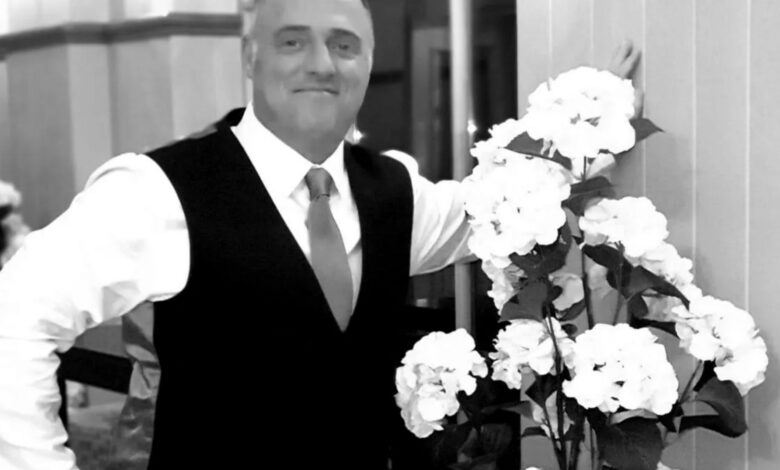How a Facebook check was key to unmasking Britain’s biggest romance fraudster



RAYMOND McDonald – a 51-year-old Briton who defrauded vulnerable women of thousands of euros through false promises of love and ‘special’ chat conversations.
Over the past 20 years, Raymond, from Country Durham, has been in and out of prison several times and is considered one of Britain’s most prolific romance fraudsters.
It first started in 2003 when he was convicted of fraud – before turning to an elaborate romance scam, promising women a luxurious lifestyle.
After leaving prison last December, it wasn’t long before Raymond started seeing several women at the same time, whom he met on dating sites.
The prolific fraudster cheated them out of money and even tried to marry one of the victims.
But just a few months later, Raymond ended up back behind bars in August.
read more about relationships
The victims have now bravely decided to speak out, describing to the BBC the level of trauma of sexual assault and domestic violence.
One of the women who shared her story said they first met Raymond last December through a dating site.
Here he told her he was working in a secret military role over the holidays but wanted to keep in touch with her over Christmas.
The woman, named Paula, said: ”(He) just made you feel, I don’t know, wanted. Special. I haven’t been in a relationship for so long. “I think in retrospect, that’s what I wanted to hear.”
But as it turned out, Raymond didn’t just talk to Paula – he formed relationships with numerous women, making arrangements to meet and telling them that he had just gotten divorced and was starting a new job.
One claimed the 51-year-old allegedly told her he had to be on duty at the probation service in the evening – when in fact he was reporting for probation.
All the women who came forward to share their stories initially described Raymond as warm, sincere and even vulnerable.
However, as he saw the vulnerable women, he took money from them to pay for things that would never happen – such as luxury items or home deposits – while his victims were given the false impression that he had assets abroad, as well as fancy cars.
While maintaining the relationship, Raymond left for the Middle East to tie the knot with his partner, a person he had only been dating for weeks.
Police believe the fraudster paid for the trips with money swindled from other victims, making arrangements and showing his partner false evidence that their marriage was legal under local law.
The woman never had any reason to think it was all a sham when they returned from their ‘honeymoon’ in March – just four months after he was released from prison.
However, as time went on, some of his victims began to become suspicious of who he was – and Paula was concerned, she turned to Clare’s Law, which can be used by people to request information about a person’s previous offense partner.
Are we dating the same guy?
Another victim who fell for Raymond’s charming character also started questioning his victims after he pressured her to pay him more money to buy luxury gods that never appeared – and decided to post about him in a Facebook group called Are We Dating The Same Guy?.
The reactions she received were shocking.
One of the page’s members showed the victim a newspaper article describing the 51-year-old as ‘cowardly’, which was witnessed by his victim.
As her new husband sat in another room, the woman looked at the comments and said, “My world just fell apart.”
How to protect yourself from scams
BY keeping these tips in mind, you can avoid getting involved in scams:
- First, remember that if something seems too good to be true, it usually is.
- Check if brands are “verified” on Facebook and Twitter pages – this means the company has a blue checkmark on its profile.
- Look for grammatical and spelling errors; fraudsters are notoriously bad at writing correct English. If you receive a message from a “friend” informing you of a free copy, consider whether it is written in your friend’s normal style.
- If you’re invited to click on a URL, hover your mouse over the link to see the address you’re going to. Does it look real?
- To be safe, don’t click unsolicited links in messages, even if they appear to come from a trusted contact.
- Also, be careful when opening email attachments. Fraudsters are increasingly adding files, usually PDFs or spreadsheets, that contain dangerous malware.
- If you receive a suspicious message, report it to the company, block the sender and delete it.
- If you think you have been tricked, report it to Action Fraud on 0300 123 2040 or use online fraud reporting tool.
Shortly afterwards, she made an excuse to leave and immediately contacted the police, and the fraudster was arrested just hours later.
Raymond’s own mother has described him as a ‘big liar’ and a ‘complete sham’, revealing he told women he had duped her death and even pretended to go to her funeral on Valentine’s Day. .
So who is he, Raymond McDonald?
The romance fraudster was dishonorably charged by the military in 2000 and worked for a time at a supermarket and a chicken-packing factory before turning to fraud.
He received his first prison sentence in 2003, followed by a suspended sentence four years later, on top of a further four prison terms.
After being released for the term he was sentenced to in 2019, he immediately began defrauding another woman and was recalled to prison.
In the latest case, just two weeks after his release last December, Raymond was back on dating sites looking for potential targets, devastating women once they found the truth.
One said: ”My whole world fell apart.”
Another victim recalled that when detectives arrived at her front door and explained what had happened, she said she “couldn’t get out of bed.”
“Normally people think ‘dangerous’ is someone who can hurt you physically, make you bleed, but Raymond hurts people emotionally,” said Detective Constable Saad Sheban, the latest to put the fraudster behind bars.
According to the detective, there could be “hundreds” more victims living with the consequences of Raymond’s lies.
Following the latest arrest in March, the 51-year-old initially denied any wrongdoing but later pleaded guilty to three counts of fraud by false representation and was jailed for four and a half years at Newcastle Crown Court in August.
The judge noted that the emotional impact on the women far outweighed the financial loss suffered.






